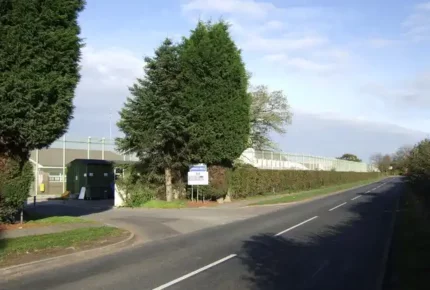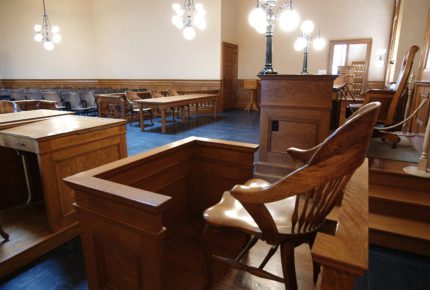

Concerningly, offences related to the production of indecent images have seen a significant increase in the UK. If you find yourself arrested or charged with producing indecent images, seek the assistance of a criminal defence solicitor as early as possible to guide you through the legal process and protect your rights. In this article, we will address some critical questions you might have, including whether you need a solicitor, what potential defences are available, and the likelihood of being granted bail. Additionally, we will explore the legal procedures you should expect if facing such charges.
Do I need a solicitor for producing indecent images?
Producing indecent images falls under the Protection of Children Act 1978 and the Criminal Justice Act 1988, and it carries significant legal consequences. Whether you are alleged to have produced, distributed, or possessed such images, the potential ramifications can be severe, including a custodial sentence and being placed on the sex offenders register.
A criminal defence solicitor is specialised in navigating the legal system and can offer invaluable assistance in various ways:
- Expert guidance: A solicitor can help you understand the specific charges against you and the legal processes involved. Given that the law surrounding indecent images is complex and subject to strict interpretation, having expert guidance can make a significant difference.
- Legal strategy: Developing a robust defence strategy is crucial. A solicitor will assess the evidence against you, identifying any weaknesses in the prosecution’s case and helping to build an effective defence. This might involve challenging the legality of searches, questioning the authenticity of the evidence, or presenting mitigating circumstances.
- Rights and protections: A solicitor ensures that your rights are protected throughout the legal proceedings. From police interviews to court appearances, having a professional present helps to ensure that you are treated fairly and that any evidence is obtained in compliance with legal standards.
What are possible defences for producing indecent images?
One possible defence is that the accused was unaware of the indecent nature of the images or the fact that they were produced. This might apply, for example, if someone unknowingly downloaded or shared content that was later discovered to be indecent.
In some cases, it may be possible to argue that the accused was not the person responsible for producing the images. This could arise in situations where multiple individuals had access to the device or platform used to create or store the images.
If the accused was forced or threatened into producing the images, they might have a defence of duress. This would involve proving that they were coerced into the actions against their will by threats of serious harm.
The prosecution must prove that the accused had the requisite mens rea, or intention, to produce indecent images. If it can be demonstrated that there was no intention to create such images, this might serve as a valid defence.
Furthermore, technical defences may be available, which relate to flaws in the investigative or procedural process, such as issues with the gathering of evidence or breaches of privacy and human rights during the investigation.
Will I get bail for producing indecent images?
Firstly, the courts consider the severity of the offence and whether the defendant poses a risk to the public if released. Cases involving indecent images are often treated stringently due to potential risks to vulnerable individuals, especially if the images involve minors.
Another major factor is the defendant’s previous criminal record. A person with a history of similar offences or other serious criminal activities might find it more challenging to secure bail. The concern here is whether there is a likelihood of reoffending while out on bail or if there’s a risk of not adhering to bail conditions.
The court will assess whether there is a risk of the defendant failing to appear for subsequent court hearings. Courts generally look at the defendant’s ties to the community, such as employment, family responsibilities, or property ownership, which might suggest a lower flight risk.
Interference with the case, particularly in terms of tampering with witnesses or evidence, is also a crucial consideration. If there is a fear that the defendant might impede the investigation in any way, the court may be reluctant to grant bail.
Will I have to go to court if I’m arrested or charged for producing indecent images?
Producing indecent images is typically dealt with in the Crown Court due to its grave nature, so it is likely you will have to attend court at some point. That said, there are a few key factors that will influence the likelihood of your case going to court:
- Nature of the images: The classification of the images can influence whether your case is dealt with in court. Indecent images are categorised into three different levels, with Category A being the most severe. The category of the images involved in your case could dictate whether it necessitates a court appearance.
- Previous offences: Your criminal history may play a role in the decision-making process. If you have previous convictions related to similar offences, it is more likely that your case will be brought before a court.
- Strength of the evidence: If the evidence against you is compelling and there is a strong case, it is more probable that it will proceed to court. This may involve detailed digital forensic evidence and corroborative testimonies.
- Prosecution decision: The Crown Prosecution Service (CPS) will assess whether it is in the public interest to prosecute the case in court. They will consider factors like the severity of the alleged crime, the impact on any victims involved, and any mitigating circumstances you present.
Will I go to jail if found guilty of producing indecent images?
Firstly, the severity of the offence will be assessed. Producing indecent images can range substantially in seriousness, from possessing a small number of images to being involved in a large-scale operation of production and distribution. The more extensive or organised the activity, the more likely it is that a custodial sentence will be imposed.
Another critical factor is the category and nature of the images involved. The CPS provides guidelines that classify indecent images into various categories based on their content, with higher categories generally leading to harsher sentences. In assessing your case, the court will consider whether the images are at the more extreme end of the spectrum or less severe.
Your previous criminal record will also play a role. If you have prior convictions, particularly those of a similar nature, this could increase the likelihood of receiving a custodial sentence. Conversely, if you have no prior record and can demonstrate that this offence does not represent a pattern of behaviour, leniency may be more likely.
Will I go to jail if it’s my first offence of producing indecent images?
Whether a first-time offender will go to jail for producing indecent images under English law depends on several factors, primarily the severity of the offence and the circumstances surrounding it. In this regard, the factors are much the same whether you are a first-time offender or a repeat offender.
The court will assess the nature of the images produced, which are categorised into three levels of seriousness: Category A (the most severe), Category B, and Category C. Producing Category A images, which involve the most serious forms of abuse, is more likely to result in a custodial sentence, even for a first-time offender. The volume of material and the offender’s role in its production, such as whether they actively created or distributed the images, will also influence the likelihood of imprisonment, as will consideration of aggravating and mitigating factors.
Can I get Legal Aid for producing indecent images?
Legal Aid is designed to help individuals who cannot afford the costs associated with hiring legal representation. To determine if you qualify for Legal Aid when charged with producing indecent images, you will need to meet specific eligibility criteria, which largely focus on two main tests: the means test and the merits test.
Firstly, the means test assesses your financial situation to evaluate whether you can afford to pay for your legal defence. The factors considered include:
- Income: Regular earnings from employment or other sources.
- Savings: Any substantial savings or assets you may have.
- Expenditure: Your necessary living expenses and dependents.
If your income and assets fall below a certain threshold, you may be deemed eligible for Legal Aid on a financial basis.
The second consideration is the merits test. This assesses the seriousness of the case and whether it is in the interests of justice for you to receive Legal Aid. Producing indecent images is considered a serious offence under English law, and cases involving such charges typically meet the merits test due to the potential for severe penalties, including custodial sentences.
Where to get more help
Understanding the complexities of the English criminal justice system can be challenging, especially when you’re facing criminal charges. Having an experienced criminal defence solicitor by your side is crucial to ensuring that your rights are protected and you receive a fair trial. Stuart Miller Solicitors are dedicated to providing expert legal advice and representation tailored to your specific situation. If you’re in need of assistance, get a free consultation by contacting us today.
OUR COMMITMENTS TO YOU:
-
Responsive
A legal expert will consult you within 24 hours of making an enquiry.
-
Empathetic
We will always treat you with trust, understanding and respect.
-
Specialised
Your case will be handled by an expert who specialises in your type of offence.
-
Proactive
We will take early action to end proceedings as soon as it is practically and legally possible to do so.
-
Engaged
You will be kept updated on your case at all times. We will provide a named contact available to answer your questions.
-
Caring
We understand this is a difficult and stressful time for you and your family. Our team will support you every step of the way.
-
Tenacious
We will never give up on your case. We fight tirelessly to get you the best possible outcome.

